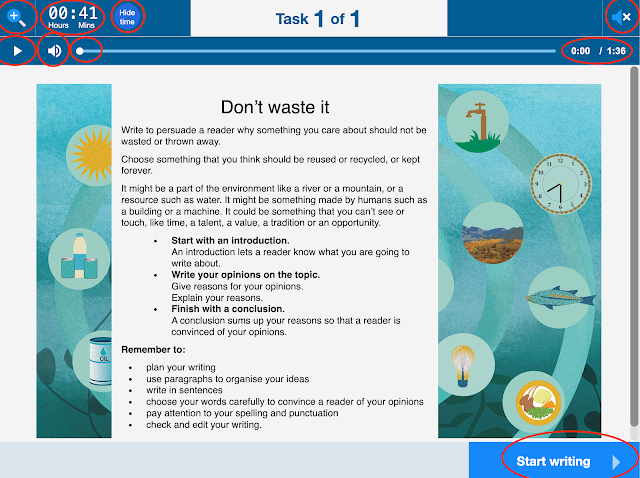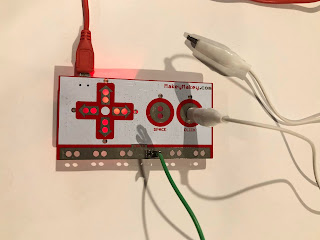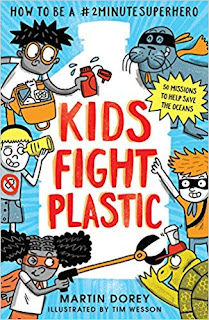Future Schools
Future Schools 2016
Future Schools 2016 had a focus on computational thinking and coding. There lots of fantastic speakers and interesting delegates to network with.
This year I spoke at 2 congresses on coding. In the coding congress the focus was on coding and the curriculum. In the young learners congress I spoke on introducing computational thinking using offline tasks and modifying or modifying existing tasks to cover computational thinking skills, this presentation included links to the curriculum also.
Links to my presentation and resources are and can also be found at iMerinet.weebly.com
Tim Bell - csunplugged.org
Tim presented activities from the csunplugged website.
Check that digit This was almost a magic trick where Tim was able to predict the final number of a random water bottle in the audience.
Other error detection lessons are also listed in the Error Detection activities. Each activity on the csunplugged.org site is dense with links and information.
My advice to teachers wanting to use this resource is to carefully workthrough the resources and locate something relevant to their class level. There are many more activities to found on the error detection page.
http://www.cimt.plymouth.ac.uk/resources/res1/barcode.htm
http://www.cimt.plymouth.ac.uk/resources/res1/barcode-editor/default.htm
http://www.cimt.plymouth.ac.uk/resources/topical/bar/codes_u3_text.pdf
OHP http://www.cimt.plymouth.ac.uk/resources/topical/bar/codes_u3_os.pdf
Student Resources http://www.cimt.plymouth.ac.uk/resources/topical/bar/codes_u3_text.pdf
Tim Bell - csunplugged.org
Tim presented activities from the csunplugged website.
Check that digit This was almost a magic trick where Tim was able to predict the final number of a random water bottle in the audience.
Other error detection lessons are also listed in the Error Detection activities. Each activity on the csunplugged.org site is dense with links and information.
My advice to teachers wanting to use this resource is to carefully workthrough the resources and locate something relevant to their class level. There are many more activities to found on the error detection page.
Error Detection
http://csunplugged.org/error-detection/http://www.cimt.plymouth.ac.uk/resources/res1/barcode.htm
http://www.cimt.plymouth.ac.uk/resources/res1/barcode-editor/default.htm
http://www.cimt.plymouth.ac.uk/resources/topical/bar/codes_u3_text.pdf
Teaching Package
Lesson Plan http://www.cimt.plymouth.ac.uk/resources/topical/bar/codes_u3_lp.pdfOHP http://www.cimt.plymouth.ac.uk/resources/topical/bar/codes_u3_os.pdf
Student Resources http://www.cimt.plymouth.ac.uk/resources/topical/bar/codes_u3_text.pdf
Workshop by Larry Rosenstock and the Dean of High Tech High.
High Tech High has an international reputation for implementing project based learning. Schools such as Marist Brothers, Parramatta and St Monica's, Parramatta have successfully implemented similar pedagogues.
The workshop focussed on how to introduce project based learning to staff.
This began with the question:
- What is your most memorable education moment?
- Find common themes in all the moments.
- List every theme on the board. (a long list)
- Tally results.
- Order themes.
Second activity:
- Discuss our personal interests and hobbies.
- List how these skills could be tied into projects.
An example given by Larry was a biology teacher with an interest in photography may do a project with a focus on photography of plants and animals. In his case study the class produced a book of their photographs with information about each photograph.
High Potential Classrooms - Jane Hunter
Jane Hunter presented in the Leaders congress on her research on High Potential Classrooms. Followed by the experience of 2 teachers in her research.
Jane says there are no worksheets in a high possibility classroom.
Characteristics of a high possibility classrooms,
Some of the resources presented included:
a post on edutopia.org
Jane says there are no worksheets in a high possibility classroom.
Characteristics of a high possibility classrooms,
- real work opportunities,
- voice,
- ownership and
- responsibility.
Some of the resources presented included:
a post on edutopia.org






Comments
Post a Comment